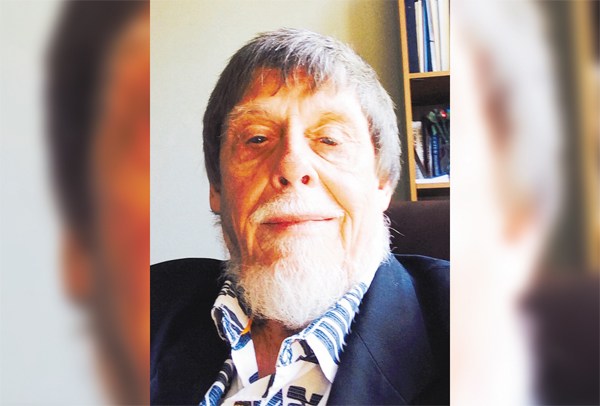LIHUE — The courts’ psychiatrist is retiring after 22 years of service with the state Department of Health.
Dr. Olaf K. Gitter, Ph.D. is based in Honolulu but travels to Kauai frequently to interview defendants with criminal cases at 5th Circuit and district courts. When the court wants to determine if a defendant is mentally fit to proceed to trial, he conducts an evaluation as ordered by the presiding judge.
“I go to all the different circuits to testify,” Gitter said. “I enjoy my visits to Kauai tremendously.”
At age 69, Gitter said he could have worked longer but decided the time was right to retire. It was becoming difficult to leave his work at the office, he said. For years he had no problem separating his private life, but the nature of the work is disturbing at times, and takes its toll.
“Over the last year or so, I find I am less able to turn it off and it invades my dream life,” he said. “I read the grueling police reports and it is haunting. I said, ‘Enough … I have got to get out now.’”
Chronic substance abuse is common among people with mental health issues, Gitter said. The effects of an addiction, such as hallucinations or delusions, can mimic a psychiatric disease or disorder. If the symptoms persist after sobriety, it may be a dual diagnosis.
Chronic alcohol abuse and depression go hand in hand, he said. Illicit drug use and abuse of prescription medications also mask disorders.
Physical, emotional or sexual abuse can also predispose a person to becoming mentally ill, Gitter added. Homelessness is another contributing factor.
“There is a lack of social support over on Kauai,” he said. “I saw a lot of folks who are in trouble with the law. They came to be in paradise and with no social support whatsoever, it becomes easier to start engaging in criminal activities when there are no resources and so they start stealing.”
As one of five examiners, Gitter said he handled hundreds of examinations each year.
Gitter said his earliest trips to Kauai were just after Hurricane Iniki. He has since returned to interview defendants at Kauai Community Correctional Center.
“The work load was incredibly high,” he said. “With no one appointed to replace me yet, the client load for the other examiners is snowballing and the judiciary needs to talk to HDH at some point to see about more examiners.”
Gitter started working as a psychologist after graduating from the University of Hawaii in 1976. He served for three years in the U.S. Army and then for 12 years as a psychiatrist for the California criminal justice system’s in-take patient center.
In 1992, Gitter and his family returned to Hawaii when he started work with the Department of Health. In 1993, he was assigned as a clinical psychologist to the state courts and corrections.
For the past three years Gitter has worked part time as a psychologist at the Chrysalis Institute in Honolulu. Now that he no longer works full time with the state, he plans to continue with a part-time private practice.
“We are sorry to lose him but wish him a happy retirement,” said state Public Defender John Tonaki, who called Gitter an asset to his office and the court system. “He certainly gave a great deal of commendable service to the state.”
Without the examiners, Tonaki said it would be impossible to move cases involving clients with mental health issues through the system. It would also be difficult to find appropriate places for the many defendants with mental health challenges.
As a member of a governor’s task force to look at the forensic mental health system, Tonaki said the issues include overcrowding at Hawaii State Hospital, care of special needs clients and community placement.
“There is a need for more services,” Tonaki said. “The vast majority of people throughout the court system do not need to be locked up and need appropriate housing where they can have medications monitored and treat the issues they have.”
Gitter notes that the state mental health system was functioning well when it was fully funded.
“The system was quite a bit better when the Department of Health had more money and more ancillary services for the chronically mentally ill,” Gitter said. “Case management services handle the little things that make it all work.”
Gitter hopes his replacement makes sure to take care of their own needs.
“Don’t be a hero and take care of your mental health,” Gitter said.
Changes M.D. to Ph.d.





